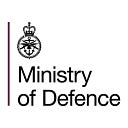Headquarters Standing Joint Command (HQ SJC): Coordinating the military contribution to the UK’s resilience operations
HQ SJC (UK) facilitates and plans support for Military Aid to Civil Authorities (MACA) requests
When the Ministry of Defence offers to help civil authorities like local councils and communities as part of MACA, it is the core role of HQ SJC (UK) to coordinate these specific asks and make sure that the promised support adds to its resilience. Support to the UK civil authorities is provided during events that impact the nation as a whole like natural disasters, accidents and terrorist attacks…and of course as in this instance, Coronavirus.
Some recent examples of emergencies, crises and events include:
- on March 15, 2020, a critically ill COVID-19 positive patient was flown by Military Chinook from the Isle of Scilly to Newquay International Airport as part of MACA
- an RAF A400M transport aircraft responded to a request to transfer a critically ill COVID-19 positive patient from hospital in the Shetland Islands to an Intensive Care Unit in Aberdeen
- deploying 300 UK Armed Forces personnel to South Yorkshire in November 2019 to support flood relief efforts
- building flood defences, evacuating vulnerable people, providing helicopter support and clearing roads in Cumbria, Lancashire and Yorkshire during the winter floods of 2015 to 2016
- providing security for major events, including the 2012 Olympic and Paralympic Games, and the 2014 Commonwealth Games
- helping UK travellers stranded overseas by the Icelandic ash cloud in 2010
Military assistance is provided on the basis that the relevant civil authority retains responsibility for, and control over, the situation and/or emergency. Military personnel only help out as part of a support structure — for example, delivering aid to where the civil authority deems necessary or evacuating critically ill patients to hospitals. In simple terms, Defence is the one stop-shop that can help out when normal services become over-stretched.
MOD’s role is usually concentrated in 2 main areas:
- Providing unique capabilities that it uses for its own purposes and which the rest of government doesn’t have access to, like the ability to ask scientists from Defence Science and Technology Laboratory to run the investigation into the Novichok attack
- Supporting authorities like NHS when their capacity is over-faced, such as 50 military personnel delivering personal protection equipment (PPE) like masks and gloves to NHS frontline workers during the current Coronavirus crisis
This is because:
- the requirement is urgent, and its scale is not known
- experience suggests that requirements can be met by the MOD without any problems
- it would involve using the MOD budget to pay for other government departments’ responsibilities
During a crisis, the Ministry of Defence (MOD) gives guidance to ministers and other government departments. This way, MOD acts as both a military headquarters and a department of state.
All Defence operations in the UK are authorised by the Defence Council and for these, the Chief of Defence Staff appoints Commander Home Command as the Standing Joint Commander (UK). This makes them responsible for the planning and execution of civil contingency operations within the UK and its territories.
Defence support to the civil authorities is dependent upon the timely and effective liaison with other government departments and local resilience forums. This liaison is facilitated through a network of regional liaison officers. All of which is going on in the background in support of the UK’s national response to the current Coronavirus crisis.
